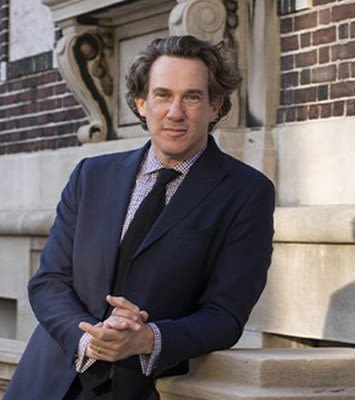CLARITY. COMPASSION. CREATIVITY.
It’s Your Life, Your Loved Ones, Your Wishes.
It’s not hard to find a form for a will, online or from the least expensive lawyer in the neighborhood. But is that document right for you? Will it carry out your wishes? Will it serve the needs of the people you love?
Putting your personal affairs in order doesn’t have to be a complex process, but it should be an intelligent process. We start by asking all the right questions so that we can understand your situation, analyze your needs, and craft a set of documents that will address your concerns as completely and as clearly as possible. We know what to ask and think about, and we’re here to help you get the best answers.
RON L. MEYERS
ATTORNEY
After earning my B.A. from Columbia University and my J.D. from Harvard Law School, I practiced for several years at a number of major international law firms. In 2009, I decided to open my own practice to offer small-firm attention and straightforward legal guidance to individuals and families in New York. Passionate and deeply knowledgeable about the fields of estate law and real estate transactions, I’ve spent more than a decade helping clients navigate issues that occur with real property in estates.

Revocable (“living”) Trust
Irrevocable Trust
Insurance trust
Guardianship Designations
Supplemental-needs trust
Charitable trust
Health care proxy / living will / advance directive
Enrollment in emergency contact / health care proxy retrieval program
Power of attorney, for New York and possibly other states
Instructions for disposition of remains, including anatomical donations to medical institutions
Memorandum for disposition of tangible personal property
Beneficiary designations
Marital or domestic partner agreement
Buy-sell agreement
Disclosures and waivers for the facilitation of probate procedures
Will
What is estate planning?
Estate planning covers three major areas of law, which interact in complex ways. Each has its own vast set of rules, and each raises its own set of important questions.
-
![person]()
INHERITANCE
Who will receive your property after your lifetime? Different kinds of assets require different kinds of documentation. Do you wish to make different provisions for different people? Can everyone handle the responsibility of receiving assets? Should any strings be attached? Have you considered the different circumstances that might exist when the time comes? Might your gift interfere with public benefits that a beneficiary is receiving?
-
![briefcase]()
ADMINISTRATION
How easy or difficult will it be to manage your various assets? Who will be the right person or people to get the job done while managing relations among the various interested parties? What complexities might arise due to jurisdictional issues, family relations, or the nature of your assets? And what if your affairs require administration while you’re alive but unable to handle them?
-
![scroll]()
TAXATION
Will estate tax apply to your estate? Gift tax? Inheritance taxes? Capital gains tax? Income tax? Transfer taxes? State, city, or federal taxes? Who must pay, and when, and from what assets? And what can we do in advance to reduce or eliminate the burden?Where there’s a will, there’s a way. Not to worry – whatever you wish to do can usually be done, as long as we think it through carefully and write the documents thoughtfully.
Don’t Take on Estate Planning Alone
HERE’S HOW TO START
Review of Existing Documents
It’s not uncommon for estate documents to accumulate over time. You might start with a will, and then make some revisions, add a trust, change a trustee, re-title a property. And the result could be a complicated set of materials that may or may not have the intended effect, and may or may not suit your current needs. If you have anything more than one will in effect, it might be a good idea to bring your documents in for a comprehensive review.



